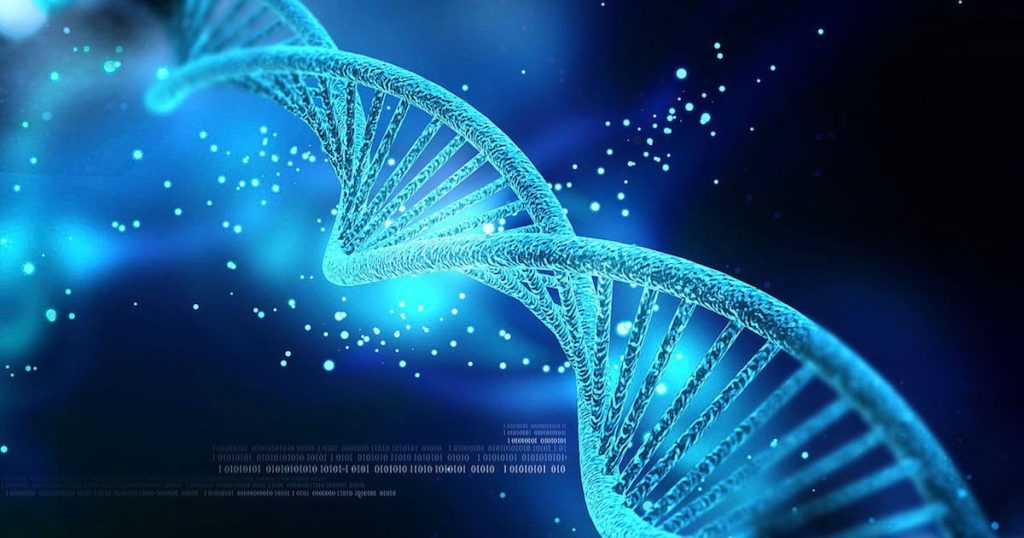 Evolution
Evolution
 Intelligent Design
Intelligent Design
The New Post-Junk-DNA Paradigm of Molecular Biology: RNA Genes

As I wrote here yesterday, molecular biologist John Mattick’s new BioEssays paper reviews many “anomalies” in the evidence that contradict the “junk DNA” paradigm that has reigned in biology over the past few decades. If there are so many problems with the paradigm, why do so many biologists still adhere to it? Mattick believes it’s because “many molecular biologists are invested in the current paradigm and a coherent alternative synthesis has not been offered.” His BioEssays paper thus turns to the task of offering a new paradigm that accepts the importance of non-coding DNA. But he notes that according to the famous historian of scientist Thomas Kuhn, a new paradigm won’t be accepted “unless it is both credible and consistent with the established body of knowledge.”
“Another Class of Genes That Produce RNAs”
The main point of Mattick’s new paradigm is that in addition to protein-coding genes, there’s “another class of genes that produce RNAs.” These “RNA genes” perform many diverse functions, but primarily they “act as regulatory molecules to control gene expression and organise nuclear territories and cytoplasmic domains during ontogeny.” He summarizes the new paradigm this way:
[I]n simplified Kuhnian terms, the dominant paradigm in molecular biology since its foundation that “genes encode proteins and sequences that do not are mainly junk” should be replaced by “genes encode proteins and regulatory RNAs, the latter required for the epigenetic control of developmental trajectories”. RNA is not simply an intermediate between gene and protein, but a major player in gene regulation and a contributor to inheritance.
A video abstract for his paper frames the new “RNA gene” paradigm as follows:
Genes don’t just encode proteins. They encode both proteins and regulatory RNAs, often both, with the latter expanding with developmental complexity and eventually dominating the genetic programming of complex organisms.
These RNA genes have many functions but a large proportion entail gene regulation-related functions that fall within the category of epigenetics. Mattick identifies multiple types of RNAs that perform these important functions:
- Small regulatory RNAs (e.g., microRNAs) which regulate translation of proteins, regulate epigenetic process, and are also involved in alternative splicing.
- Long non-coding RNAs (called “lncRNAs”) which also influence gene expression by controlling transcription factors and transcription-splicing and also modulate many genetically variable traits. Some may even encode peptides.
- Transposable elements are important for gene structure and function, and gene regulatory networks.
- Overall these types of functional RNAs undergo much post-transcriptional editing and are important for brain function, and also can foster “transgenerational epigenetic inheritance.”
“Contrary” to the “Dogmas of Evolutionary Theory”
Mattick has explained this new paradigm elsewhere as well. In a weighty academic book published earlier this year, RNA: The Epicenter of Genetic Information (Taylor & Francis), Mattick along with bioengineer Paulo Amaral argue that “the genomes of humans and other complex organisms are not full of junk.” They acknowledge that this is “contrary to long-held … dogmas of evolutionary theory.” Here’s the striking quote in full:
While the story is still unfolding, we conclude that the genomes of humans and other complex organisms are not full of junk but rather are highly compact information suites that are largely devoted to the specification of regulatory RNAs. These RNAs drive the trajectories of differentiation and development, underpin brain function and convey transgenerational memory of experience, much of it contrary to long-held conceptions of genetic programming and the dogmas of evolutionary theory.
John Mattick and Paulo Amaral, RNA: The Epicenter of Genetic Information (CRC-Taylor & Francis, 2023), p. vii.
But This View Has Not Always Held Sway
As Mattick and Amaral note in their book, for many years it was strongly resisted by biologists who followed “the dogmas of evolutionary theory.” According to the dogmas, DNA that doesn’t code for proteins is largely junk. There’s one simple reason why this junk DNA paradigm is falling apart: the evidence shows that non-protein-coding DNA is functional. Rather than being junk, non-protein-coding-DNA is full of RNA genes that produce RNA molecules with a myriad of functions, perhaps the most prominent of which is regulating the expression of protein-coding genes. This new RNA gene paradigm is replacing the junk DNA paradigm. The literature is now replete with tens of thousands of scientific papers reporting function for RNA genes — evidence which we’ll review in more detail tomorrow.
